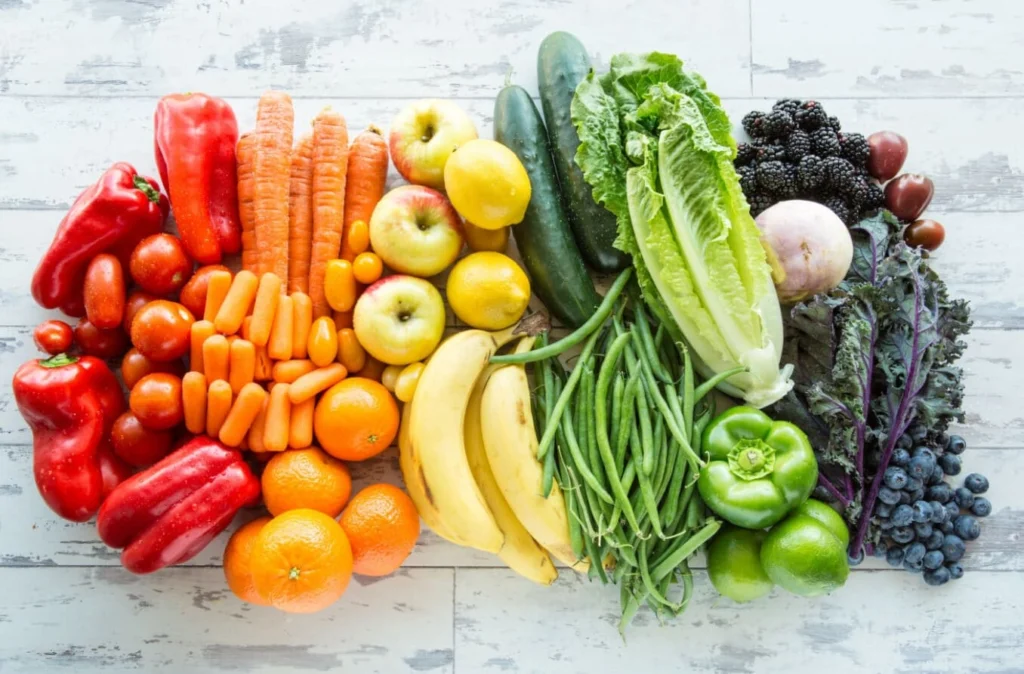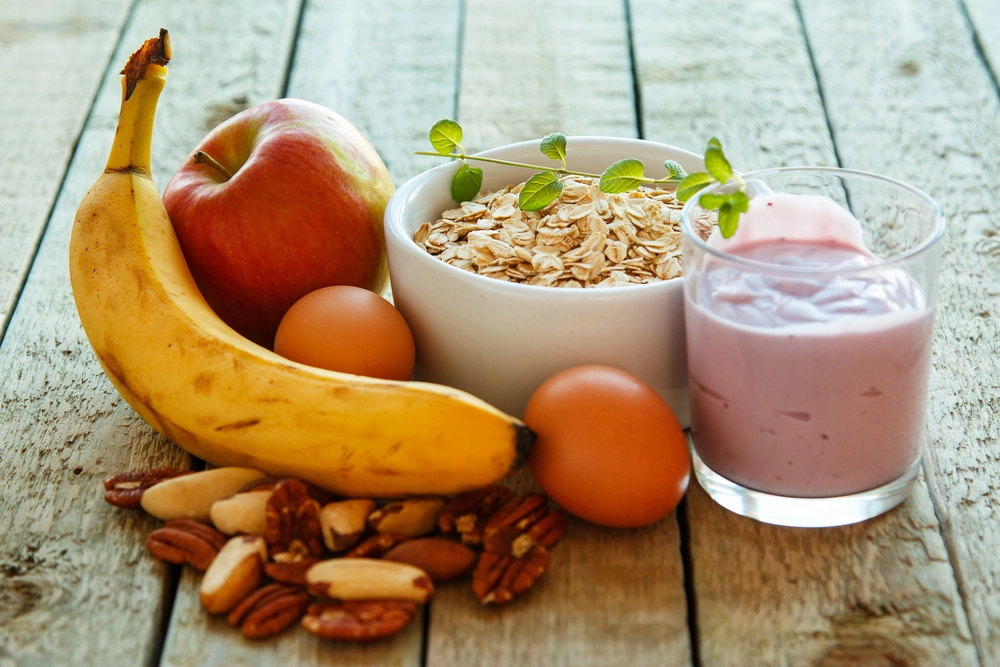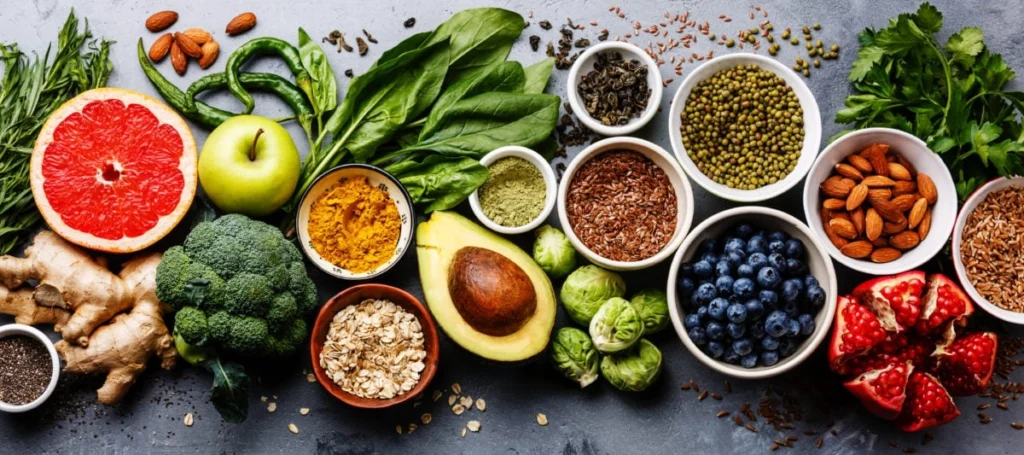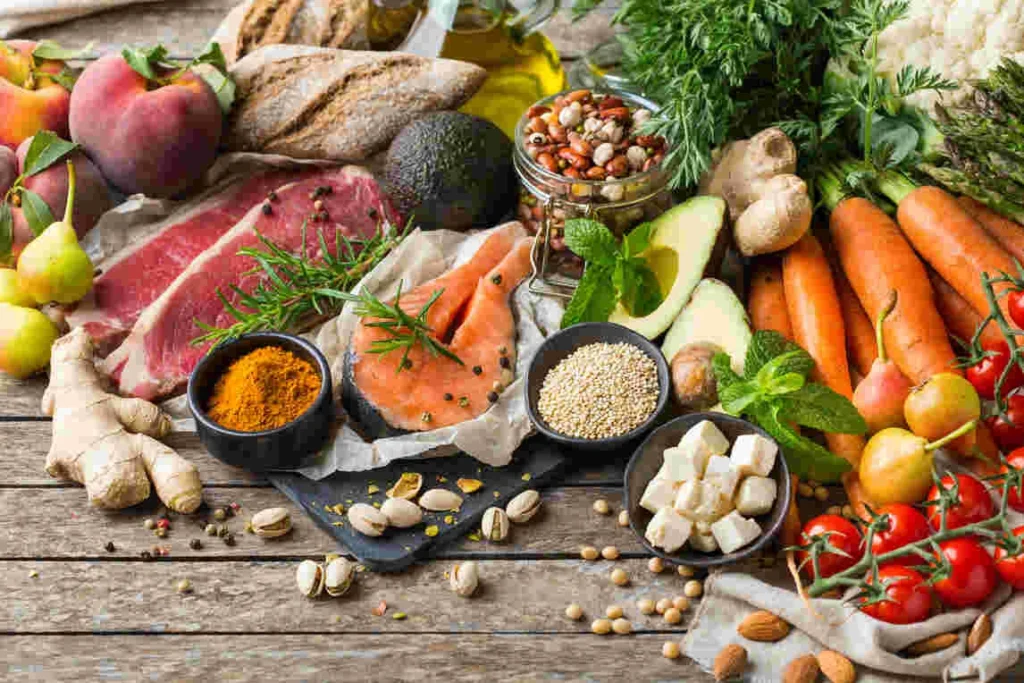Healthy Eating for Strong Bones: Strong bones are vital for general health and well-being, along with mobility, as well as quality of life. Our bones provide structure to the body, protect vital organs, store minerals, and facilitate movement. As we get older, our bone density naturally decreases, leading to an increased risk of fractures and other conditions such as osteoporosis.

Luckily, adopting a healthy diet can go a long way in improving bone strength and reducing the risks of bone-related issues. In this blog post, we are going to explore those nutrients that support the health of your skeleton, the food that you can include in your diet, and lifestyle practices.
Healthy Eating for Strong Bones
Bone is living tissue that is in a constant state of breakdown and rebuilding. Bone mass peaks in the late 20s, and maintaining that mass through adulthood is key.
Reinforcing your bones with the best nutrients available is incredibly important so they don’t become weak and fragile, especially during your older years. Women are especially susceptible to bone loss after menopause, with plummeting estrogen levels.
Nutrients that are Essential for Healthy Bones
Calcium
The mineral that is most important for ensuring optimal bone health is calcium. Approximately 99 percent of the body’s calcium is stored in bones and teeth. It strengthens bone density and keeps bones strong.
Daily Requirement: Adults require about 1,000 mg/day; women over 50 and men over 70 require 1,200 mg/day
Top sources: Dairy products (eg, milk, cheese, yogurt), leafy greens (eg, kale, bok choy), almonds, sesame seeds, calcium-fortified foods.
Vitamin D
Vitamin D is crucial for the absorption of calcium in the gut. The body cannot properly use calcium from foods without it.
Requisition Daily: 600–800 IU/day; increased for seniors or those lacking.
Best Sources: Sunlight exposure, fatty fish (salmon, mackerel), egg yolks, fortified milk and cereals, as needed supplements.
Magnesium
Magnesium works in partnership with calcium, and it is involved in converting vitamin D into its active form.
Best Sources: Whole grains, legumes, nuts, seeds, bananas, and dark chocolate.
Phosphorus
Phosphorus is the second prevalent mineral in bones after calcium. It works with calcium to form strong bones.
Best Sources: Meat, poultry, fish, eggs, dairy products, whole grains, legumes
Vitamin K
It helps with bone mineralization, and it reduces the risk of fractures.
Best Sources: Dark leafy green vegetables (e.g., spinach, kale, broccoli).
Protein
Bone matrix structure relies on protein. Low protein intake can weaken bones and lower the amount of calcium that can be absorbed. Eggs, lean meats, dairy, beans, lentils, and soy products.
Omega-3 Fatty Acids
Omega-3s also have anti-inflammatory properties and may help protect bone mass.
Best Sources: Fatty fish (sardines, salmon), walnuts, flaxseeds, chia seeds.
Best Foods for Strong Bones

Dairy Products
Calcium: Dairy is the highest natural calcium. Milk, yogurt , and cheese are good sources of protein and phosphorus, too.
Leafy Greens
Spinach, collard greens, and turnip greens contain calcium, vitamin K, and magnesium, all of which are necessary for bone health.
Nuts and Seeds
Almonds, chia seeds, and sesame seeds are rich in calcium and magnesium.
Fatty Fish
Salmon and sardines are good sources of vitamin D and omega-3 fatty acids.
Eggs
Eggs contain a small amount of vitamin D, protein, and phosphorus.
Soy Products
Tofu and tempeh are rich in calcium, and both are excellent sources of high-quality plant protein.
Fortified Foods
Certain juices, cereals, and plant-based milks are calcium and vitamin D-fortified — perfect for anyone who doesn’t consume dairy.
Foods to Avoid for Bone Health
Salt
Sodium excretion through urine is associated with calcium loss. Limit salt consumption to less than 2,300 mg/day.
Soft Drinks
Phosphoric acid in carbonated soft drinks can hinder calcium absorption and cause bone loss.
Caffeine
High caffeine doses may impair the bioavailability of calcium. Maximum 2–3 coffee cups a day
Alcohol
Excessive alcohol intake can also disrupt bone remodeling and hormone balance. One drink a day for women and two drinks a day for men.
Sample Day: Healthy Bone Diet Plan
Breakfast
• Scrambled eggs with spinach
• Whole grain toast
• Fortified orange juice
Lunch
• Salmon salad with kale, cherry tomatoes, and sesame seeds
• Yogurt with chia seeds
Snack
• Almonds and a banana
Dinner
• Tofu stir-fry with broccoli, bell peppers, and brown rice
• A glass of calcium-enriched soy milk
Nutritional Parameters for Bone Health
Regular Exercise
Both weight-bearing and resistance exercise promote growth and strengthening of the bones.
What activities are best: walking, running, weight lifting, dancing, yoga
Avoid Smoking
Smoking decreases blood flow to bones, impairs healing, and lowers bone density.
Maintain a Healthy Body Weight
Being underweight increases the risk of bone loss and consequent fractures, while obesity essentially places stress on bones and joints.
Monitor Medications
Certain drugs (such as steroids) can weaken bones. Consult your doctor always for bone-safe alternatives.
Healthy Bones Across the Life Stages

Childhood and Adolescence
This is a key period for developing bone mass; kids should eat a lot of calcium-rich foods and play outside, where they get vitamin D.
Adulthood
Emphasis turns to preserving bone density. This matches a regular intake of bone-supporting nutrients and exercise.
Postmenopausal Women
After menopause, levels of estrogen decrease, leading to accelerated bone loss. Women should also have bone density checked and consider supplements or hormone therapy as warranted.
Seniors
Falls and fractures are more common among the male age group. In addition to fall prevention strategies, proper intake of calcium, vitamin D, and physical activity is also critical.
Bone-Boosting Recipes
Calcium-Rich Smoothie
Ingredients:
• 1 cup fortified almond milk
• ½ cup Greek yogurt
• 1 banana
• 1 tbsp chia seeds
• A handful of spinach
Instructions: Combine all of the ingredients in a blender and blend until smooth. This is great as a breakfast full of nutrients or a snack.
Sardine Salad
Ingredients:
• 1 (with bones) can of sardines
• 1 tbsp olive oil
• Mixed greens
• Cherry tomatoes
Lemon juice
Directions: Mix all ingredients together in a bowl. Sardines also offer calcium, vitamin D, and omega-3s.
Supplements: Do You Need Them?
A well-balanced diet is ideal, however, some people may require supplements:
• Calcium supplements for people who do not get enough calcium from food.
• Vitamin D supplements for people with little sunlight exposure.
• Magnesium and vitamin K supplements (if recommended by a healthcare provider).
Do be sure to talk with a doctor before beginning any supplements.
Misinformation on Bone Health
Myth 1: Only dairy matters
Dairy tops the list of calcium sources, but many plant-based foods and fortified options also promote healthy bones.
Myth No. 2: Bone health is only for old people
Bone-building begins in youth, and keeping bones strong is an activity at all ages.
Myth No. 3: Supplements are superior to food
Whole foods contain a variety of nutrients that complement each other and are more effective for bone health than isolated supplements.
Conclusion
The foundation for strong bones is laid and maintained through a combination of smart dietary choices and healthy lifestyle habits. A diet rich in calcium, adequate vitamin D, and regular weight-bearing exercise can strengthen bones and reduce the risk of fractures or osteoporosis.
Whether you are young and want to build up bone mass or older and trying to take advantage of what you’ve got, it’s never too early or too late to learn how to take care of your bones. Make your plate colorful, stay on your feet, and your bones will thank you for decades to come.







